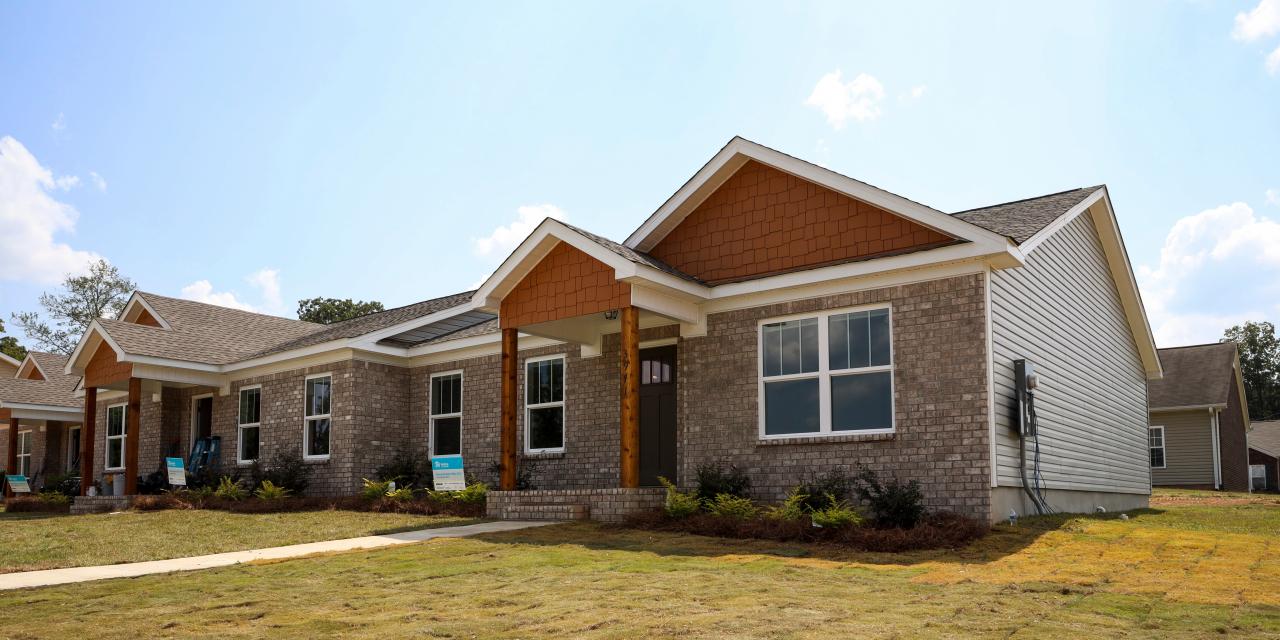Besides facilitating job creation and greater competitiveness of African micro, small and medium-sized enterprises (MSMEs), the African Continental Free Trade Area (AfCFTA) Agreement has also thrown up opportunities for real estate investors.
But these investors should be those with patient capital and long-term view of the property market. AfCFTA, a trade bloc created as a means of lifting people out of poverty and invigorating the continent’s growth trajectory, has made Africa one of the biggest economic blocs in the world, meaning that the continent is now borderless as businesses can move freely from one country to another.
“Free movement of businesses from one country to another means there is increased demand for both residential and commercial real estate, including office, retail and industrial space in which investments could be made,” Mustapha Njie, CEO, Taf Africa Global, explains to BusinessDay in an interview.
Taf Africa Global is a real estate investment firm with footprints in African countries including Nigeria, Gambia and Senegal. Nije believes that with AfCFTA, real estate investors could tap into the emerging opportunities in various countries which, according to him, are immense.
MKO Balogun, the chief executive of PFI Global, agrees, adding, “The free trade agreement allows entities across markets to explore opportunities across markets. Real Estate opportunities abound in most African countries waiting to be developed and tapped; many sub-Saharan African countries have shown huge potential for real estate.”
Balogun points out, however, that there are challenges, explaining that Nigerian real estate developers have had bad reputation of killing markets, citing Ghana where over-investment by Nigerians have had negative impact on the local economy and created investor-apathy.“
When Ghana real estate market started booming, Nigerians flooded and got involved but got the market clogged; there were too many properties; value started going down. Government didn’t do anything other than to direct that property should be valued in Ghana currency and not US dollar,” he recalls.
Though Kenya is beginning to see falling demand and price decline, Ayo Ibaru, director, Real Estate at Northcourt, insists Nairobi is still an investment destination, giving as high as 8 percent yield year-on-year on mixed use developments comprising office, retail and residential apartments.
Ibaru points to four nodes in Nairobi, the country’s capital, where because of developed infrastructure, demand is relatively high from the expatriates. Those expats are also attracted by retail malls and security in those nodes which include Kiambu, Limuru, Ridgeway and Chinbingwa.
There are major projects coming up in these areas. A typical example is the Riverbank Apartments, which promises to deliver 160 units in the next 24 months. This is the first phase of a 1,560-unit development being promoted by Senton Real Estate.
But it is not all rosy for the Kenyan real estate market generally. A new report on the market says, though Nairobi has dominantly enjoyed foreign direct investments across all real estate segments, in the past decade, which now appears to be fast ebbing away.
The report explains that the launch of affordable housing by the government as part of its Big Four agenda has not helped the situation for companies that borrowed funds to put up structures, noting that realtors are reporting poor sales, making them default on development loan repayments with their half-done houses being auctioned.In Nigeria, there are investment opportunities, especially in the low-income residential segment of the market where demand is high for small unit apartments such as studio, one-bedroom and two-bedroom apartments.
Balogun confirms to BusinessDay that demand is more in this segment of the market than any other, explaining that over 60 percent of those looking for houses to buy or rent in Nigeria today are looking for these small units apartments, not three, four or five-bedroom apartments.
But the flipside of the Nigerian market dampens investment interest. In its recent report, PwC estimates that 95 percent of households in Nigeria have no title, pointing out that it takes an average of 12 procedures and 105 days or as long as two years to register a property.
This explains why patient capital is needed for investment in this sector. “Any investor with exposure to bank credit will have his constant headache arising from pressures from his lenders’ need, both the interest and the principal on the due date,” notes a developer who did not want to be named.
He notes further that many projects have failed, not because the developer does not know what he is doing, but because regulatory challenges have held such projects down.
The cost of getting titles done, according to PwC, is about 11.1 percent of the property value. “This process is made difficult due to the low quality of land administration in cities like Lagos. This does not encourage formal declaration of assets and discourages people from registering their properties,” the professional services firm notes.
Nigeria ranks 149 on the ease of obtaining Construction Permit and requires 17 procedures, 118 days, and 27.5 percent of property value, a factor that encourages more informal construction of properties and increases risks in the real estate sector.
In Lagos, which is Nigeria’s economic heartbeat, it is estimated that 97 percent of lands in the city is unregistered, making it difficult for banks to validate claims to land or for land occupants to use their land to create wealth. This, more than anything else, accounts for Nigeria’s over 17 million housing units deficit.




